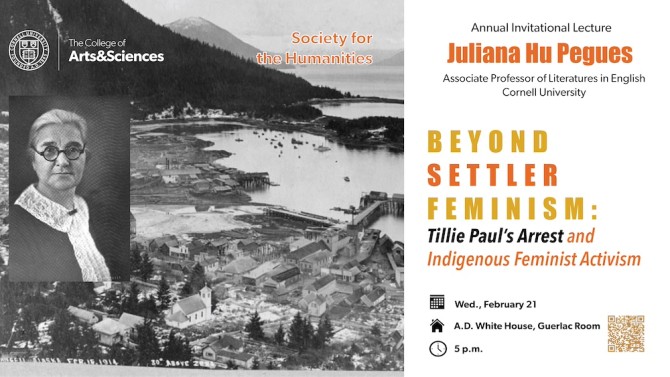In 1913, women were granted the right to vote in the first act of the Territoral Legislature of Alaska. In historical and popular press accounts, this act is often referred to as a feminist achievement. But given that the 1913 act effectively excluded Alaska Native peoples, “it appeared instead to be a maneuver to boost the white population in a territory with a majority of Native inhabitants and a sizable Asian immigrant laboring class,” said Juliana Hu Pegues, associate professor in the department of Literatures in English in the College of Arts & Sciences.
In this year’s Invitational Lecture hosted by the Society for the Humanities, Hu Pegues will use the story of Tillie Paul, a Tlingit woman in Alaska who was arrested in 1922 for helping a clan leader attempt to vote in a local election, as a case study for Indigenous feminist reponses to settler colonialism. The talk, “Beyond Settler Feminism: Tillie Paul’s Arrest and Indigenous Feminist Activism,” will take place on Wednesday, February 21, from 5:00 to 6:30 p.m. in the Guerlac Room at the A.D. White House. A reception will follow. This event is free and open to the public and no registration is required.
Paul is an important figure in Alaska Natives’ efforts to organize for voting rights and desegregation, and her legacy played into one of the most important land claim cases in U.S. history. In her talk, Hu Pegues will use evidence from court documents and literary depictions to trace Paul’s choices within Alaska Native worldviews.
Read the full story on the College of Arts and Sciences website.








